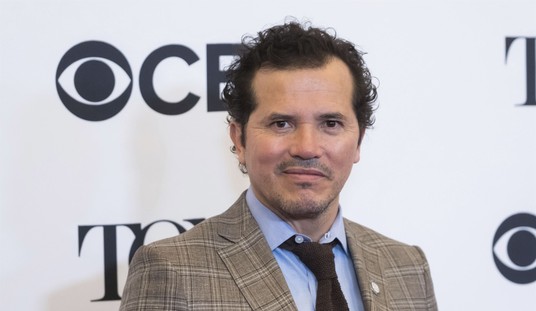Do progressives believe in States’ Rights and the idea of Federalism? Not Ezra Klein of the Washington Post.
During a discussion today about the Filibuster sponsored by the American Political Science Association, and shown on C-SPAN, Ezra Klein made a very radical assertion about the issue of States’ Rights and one that should worry conservatives who treasure the idea of federalism.
Ezra Klein states at about 1:30 into the discussion the following odd statement:
I am a Californian so I have some radical views on how the Senate is constructed and the one think I would note on this is that it is my understanding of the initial compromise is that you have all these little States and you need to bound them into a Republic. They may not want to do it and they may want to secede and you make a pretty bare knuckled political compromise to give them all this power. And eventually as we go on through history it begins to recede as you become much more of a nation in order to fight King George… I don’t understand why people think that States are a particularly a particularly useful with which to represent.
Klein expounded on this point in a blog post titled “Repeal the 17th Amendment?” over at the Washington Post where he wrote:
During our discussion of the filibuster today — which you can stream over at C-SPAN’s Web site — Heritage’s Brian Darling talked a bit about the Senate’s important role as a voice for the states. Responding to a questioner, he went so far as to say he’d consider repeal of the 17th amendment, which would mean that senators would again be elected by state legislatures rather than voters.
First of all, the Senate was envisioned by our Founding Fathers as a body to represent the interests of the States. Solutions for America, a product of The Heritage Foundation, argues for more federalism and explains that progressive governance has lead to an ever expanding federal government intruding into the traditional realm of the States:
In the American plan of constitutional government, the national government was never supposed to have all of the power or make all of the decisions. Indeed, most powers of government were located, and the decisions that affect citizens’ day-to-day lives were to be made, at the state level. This relationship was turned on its head over the course of the 20th century. Ever-increasing amounts of regulations and laws emanating from the federal government have centralized and bureaucratized political rule in America, undermining the balance of federalism and threatening self-government.
The Senate is the embodiment of the idea that States, as distinct entities, should have a say in what legislation passes the federal legislature. The House was to be the House of the people with 2 year terms and the Senate was to be the chamber that represented the interests of the States with members holding 6 year terms. Our Founders set up a system where State legislatures appointed two Senators from the State to represent the interests of the State in one chamber of Congress.
They wanted the Senate to represent the interests of the States as as part of the Great Compromise of 1787. James Madison wrote about the reason for the division between the House and Senate when he wrote in Federalist 39:
The House of Representatives will derive its powers from the people of America; and the people will be represented in the same proportion, and on the same principle, as they are in the legislature of a particular State. So far the government is NATIONAL, not FEDERAL. The Senate, on the other hand, will derive its powers from the States, as political and coequal societies; and these will be represented on the principle of equality in the Senate, as they now are in the existing Congress.
The 17th Amendment was approved by Congress on May 17, 1912. This change in Constitution removed the power of States to appoint Senators and provided for Senators “elected by the people thereof, for six years.” This change still preserved the idea that States should have distinct representation in our constitutional democratic republic. Klein seems to find that idea offensive.
Klein does not like the idea that California, with a massive population, has the same representation as North Dakota, a state with a small population. In short, Klein argues against the idea of Federalism.
From Klein’s Washington Post blog entry:
I’ve never understood this sort of thing, and said so in the panel. The Founders didn’t wisely orient the Senate around states. They pragmatically oriented the Senate around states. But now that we’ve been the United States of America for a while and none of the states seem likely to secede, the fact that California has 69 times more people than Wyoming but the same representation in the Senate is an offensive anachronism, at least to Californians. I went on to say that at this point in history, if we wanted the upper body to be based around quotas, then income, age bracket and education made more sense than states. Then I came home and read Kevin Drum’s post echoing Larry Bartels’s research (pdf) showing “that the responsiveness of senators to the views of the poor and working class is….zero. Or maybe even negative. And that’s true for both parties. The middle class does better — again, with both parties — and high earners do better still.” Conversely, the body’s responsiveness to the views of North Dakota’s farmers is really incredible. Back in February, Annie Lowrey* wrote a piece estimating the Senate’s composition if it was organized around income, gender and race, and age.
I disagree with Klein for many reasons. We live in a federal republic and one that was formed to represent the will of the people and the interests of states. Federalism is the understanding that the State as a unit is a better means of governance for the traditional police powers of a state than putting all power in a federal government. Our Founders were wise and they wanted to see a separation of powers between the Executive, Legislative and Judicial branches of government. They also crafted the Great Compromise to make sure that one chamber of the legislature was purely democratic in nature and the other represented the distinct interests of different States.
Klein also made a statement at the end of his attack on the idea of States Rights that is offensive to those who revere our Founding Fathers. Klein made an offensive comment that he is wiser than men who spilled their own blood to form our union.
At about 1:33 into this clip Klein trashes our Founding Fathers.
I think our veneration for the Founders is something that occasionally perplexes me.
This is a truly outrageous statement and is evidence of Progressives distain for our Founding Fathers. This argument is also evidence of Progressives push to centralize power in one federal government with not regard for States Rights, in the sense of a State having distinct representation in the Senate. Clearly we had a strong difference of opinion on the Senate filibuster, yet the statement from Klein about the Founders and the Senate should provide a glimpse into the agenda of progressivism.














Join the conversation as a VIP Member